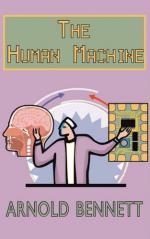Is human nature the same now as in the days of Babylonian civilisation, when the social machine was oiled by drenchings of blood? Is it the same now as in the days of Greek civilisation, when there was no such thing as romantic love between the sexes? Is it the same now as it was during the centuries when constant friction had to provide its own cure in the shape of constant war? Is it the same now as it was on 2nd March 1819, when the British Government officially opposed a motion to consider the severity of the criminal laws (which included capital punishment for cutting down a tree, and other sensible dodges against friction), and were defeated by a majority of only nineteen votes? Is it the same now as in the year 1883, when the first S.P.C.C. was formed in England?
If you consider that human nature is still the same you should instantly go out and make a bonfire of the works of Spencer, Darwin, and Wallace, and then return to enjoy the purely jocular side of the present volume. If you admit that it has changed, let me ask you how it has changed, unless by the continual infinitesimal efforts, upon themselves, of individual men, like you and me. Did you suppose it was changed by magic, or by Acts of Parliament, or by the action of groups on persons, and not of persons on groups? Let me tell you that human nature has changed since yesterday. Let me tell you that to-day reason has a more powerful voice in the directing of instinct than it had yesterday. Let me tell you that to-day the friction of the machines is less screechy and grinding than it was yesterday.
’You were born like that, and you can’t alter yourself, and so it’s no use talking.’ If you really believe this, why make any effort at all? Why not let the whole business beautifully slide and yield to your instincts? What object can there be in trying to control yourself in any manner whatever if you are unalterable? Assert yourself to be unalterable, and you assert yourself a fatalist. Assert yourself a fatalist, and you free yourself from all moral responsibility—and other people, too. Well, then, act up to your convictions, if convictions they are. If you can’t alter yourself, I can’t alter myself, and supposing that I come along and bash you on the head and steal your purse, you can’t blame me. You can only, on recovering consciousness, affectionately grasp my hand and murmur: ’Don’t apologise, my dear fellow; we can’t alter ourselves.’
This, you say, is absurd. It is. That is one of my innumerable points. The truth is, you do not really believe that you cannot alter yourself. What is the matter with you is just what is the matter with me—sheer idleness. You hate getting up in the morning, and to excuse your inexcusable indolence you talk big about Fate. Just as ’patriotism is the last refuge of a scoundrel,’ so fatalism is the last refuge of a shirker. But you deceive no one, least of all yourself. You have not,




